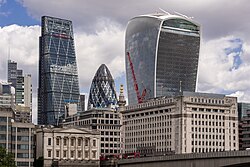The UK government appears ready to spare banks from higher taxes in the upcoming budget, in a decision Chancellor Rachel Reeves is framing as a long-term investment in economic stability.
The news provided an immediate boost to markets, with shares in NatWest and Lloyds rising by more than 2%. Analysts said the rally underscored investors’ preference for predictability after weeks of speculation about new fiscal measures.
Reeves faces the difficult task of finding additional revenue without dampening growth or deterring investment. Officials had been examining bank profits, which have soared in recent quarters due to the higher interest rate environment.
UK banks already pay one of the highest corporate tax rates in the world — 28%, which includes a 3% surcharge for the largest institutions. That surcharge remains controversial among some lenders who argue it penalises success.
The banking sector contends that further increases could hinder Britain’s competitiveness and reduce its appeal as a financial base. Industry groups also note that employer costs have climbed following national insurance adjustments earlier this year.
According to PwC, the banking industry paid £43.3 billion in taxes last year, representing about 4% of the UK’s entire tax revenue. That contribution has steadily increased alongside profits over the past decade.
While some critics see Reeves’s decision as overly cautious, supporters argue it aligns with her strategy of fostering growth before seeking new sources of revenue. The Chancellor’s challenge will be convincing the public that restraint today means stability tomorrow.

